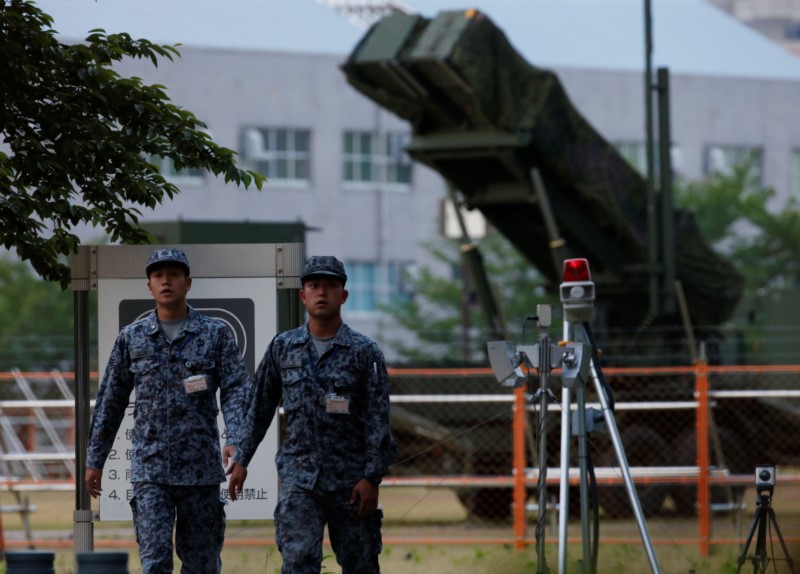BEIJING (Reuters) - China on Thursday urged Japan to act cautiously after government and defence industry sources in Tokyo said U.S. and Japanese companies are collaborating on new missile defence radars.
As nuclear-armed Pyongyang builds ever more advanced missiles with the ability to strike anywhere in Japan, Tokyo is likely to fund a ground version of the ship-based Aegis defence system deployed on warships in the Sea of Japan, sources told Reuters.
Speaking at a regular monthly news briefing, Chinese Defence Ministry spokesman Ren Guoqiang said the issue of anti-missile defences was a matter of strategic stability and trust between countries and should be cautiously handled.
"Especially because of historical reasons, relevant moves by Japan in the military and security field have always attracted close attention from its Asian neighbours and the international community," Ren said.
"Japan should act cautiously on the anti-missile issue," he added, without elaborating.
Ties between China and Japan, the world's second- and third-largest economies, have been plagued with a territorial dispute over a group of tiny East China Sea islets and the legacy of Japan's wartime aggression.
China has also strongly objected to the United States' deployment of the THAAD (Terminal High Altitude Area Defense) anti-missile system in South Korea, saying its powerful radar could look into China and affect Chinese security.

Washington and Seoul say THAAD is purely to help defend against North Korean missiles.